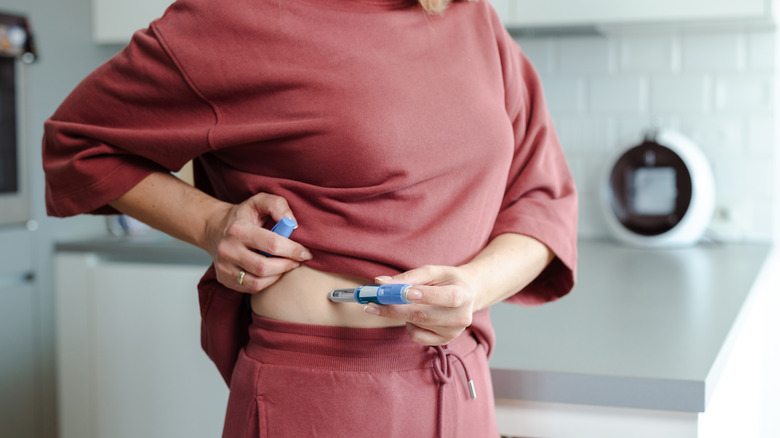Why The FDA Is Going After Telehealth Companies For Their Advertising Practices
Chances are you've come across ads online promising big discounts on medications. They usually give you a rough price estimate, but then encourage you to visit their website so a customer service rep can check whether your insurance will cover it. Lately, telehealth companies like Hims & Hers have been promoting compounded GLP-1 weight loss drugs as a cheaper alternative to the well-known brands Ozempic and Wegovy.
Now the Food and Drug Administration is cracking down on these compounded GLP-1 medications. The agency recently posted more than 100 warning letters to its website, targeting companies making questionable claims. In its letter to Hims & Hers, the FDA called out the company for saying its products have the "same active ingredient as Ozempic and Wegovy" and contain "clinically proven ingredients," which the FDA says is false and misleading.
While semaglutide itself is FDA-approved for weight loss and type 2 diabetes, compounded GLP-1 drugs are not. The FDA has told these companies to scrub those misleading claims from their ads and promotional materials. Since compounded GLP-1s haven't gone through FDA review for safety, quality, or effectiveness, the agency warns they could pose real health risks to consumers.
What's the difference between regular and compounded GLP-1 drugs?
You might remember that semaglutide was in short supply a few years back, significantly impacting people with diabetes. When a drug runs short, the FDA allows certain pharmacies to make compounded versions to help fill the gap. These compounded semaglutide medications can be cheaper than the standard injections you'd pick up at your local pharmacy, but they come with added risks since the drugs and these specialized pharmacies aren't tested or approved by the FDA. Some compounding pharmacies use research-only chemicals or other ingredients the FDA doesn't recognize as safe. On top of that, compounded oral and nasal semaglutide products haven't gone through clinical testing to confirm their safety or effectiveness (per GoodRx).
(Look out for this side effect of GLP-1 medications.)
Concerns about compounded GLP-1s aren't new. In 2024, the FDA warned healthcare providers, patients, and compounding pharmacies about reports of adverse effects tied to incorrect dosing. The biggest issue has been with multi-dose vials, where patients accidentally took up to 20 times the intended amount. In several cases, people used a large syringe and measured out 0.5 milliliters instead of 0.05. In one instance, a patient couldn't get answers from their telehealth provider, turned to the internet, and ended up taking five times more than the recommended dose.

